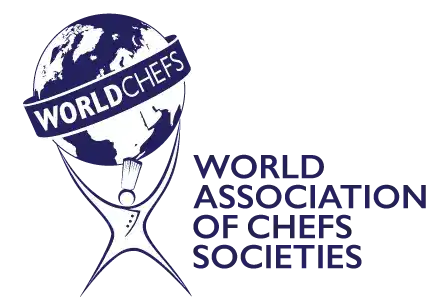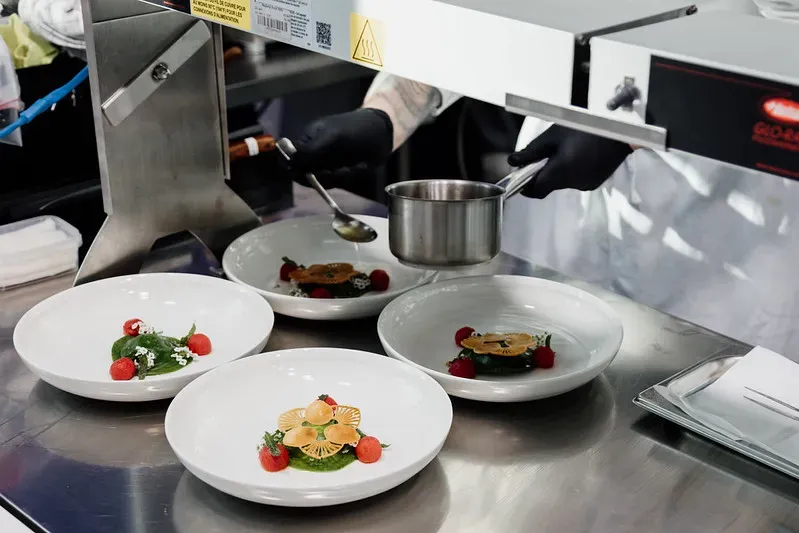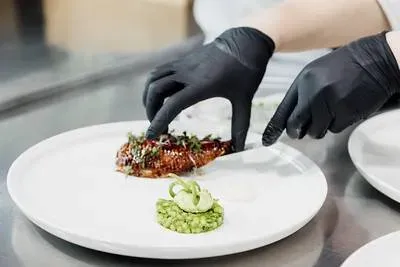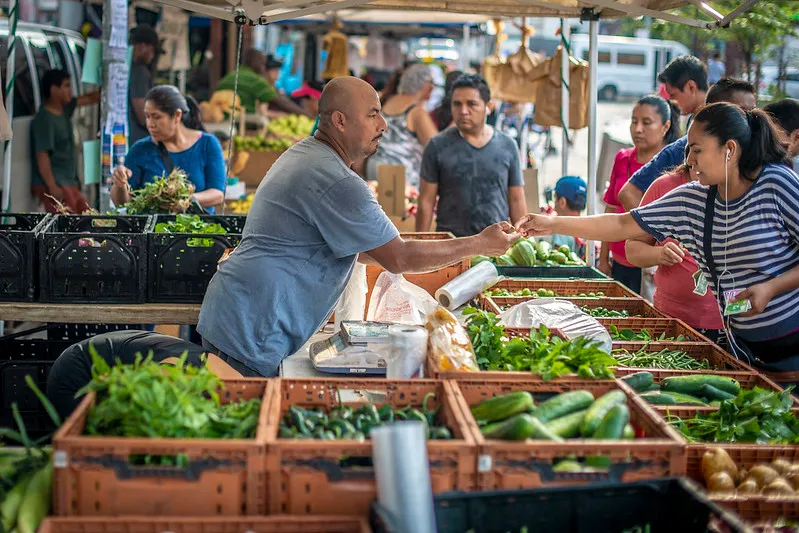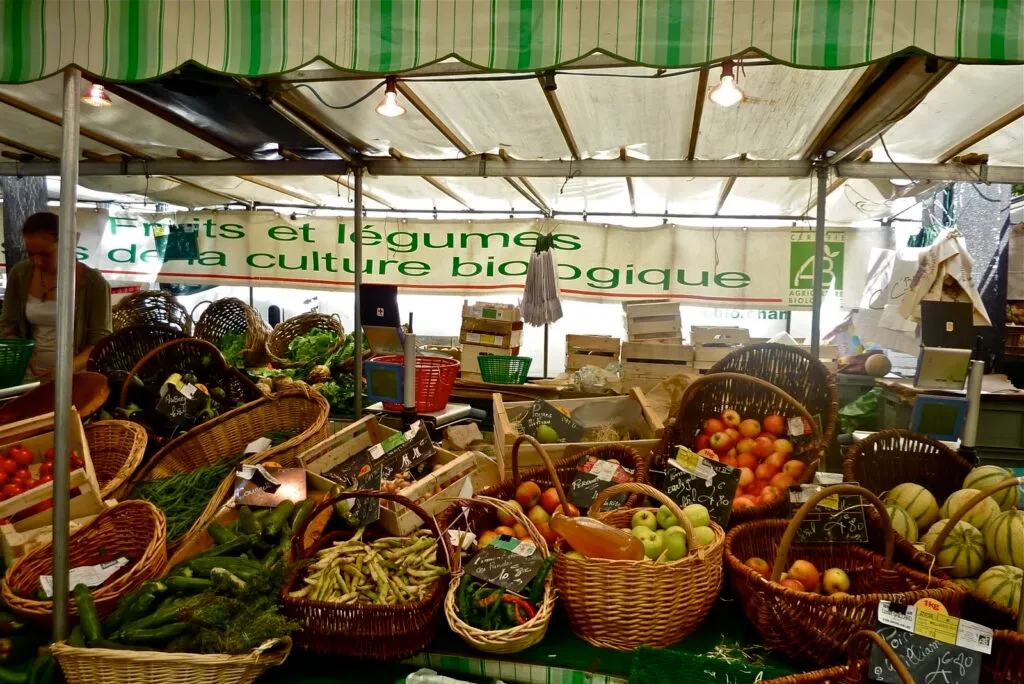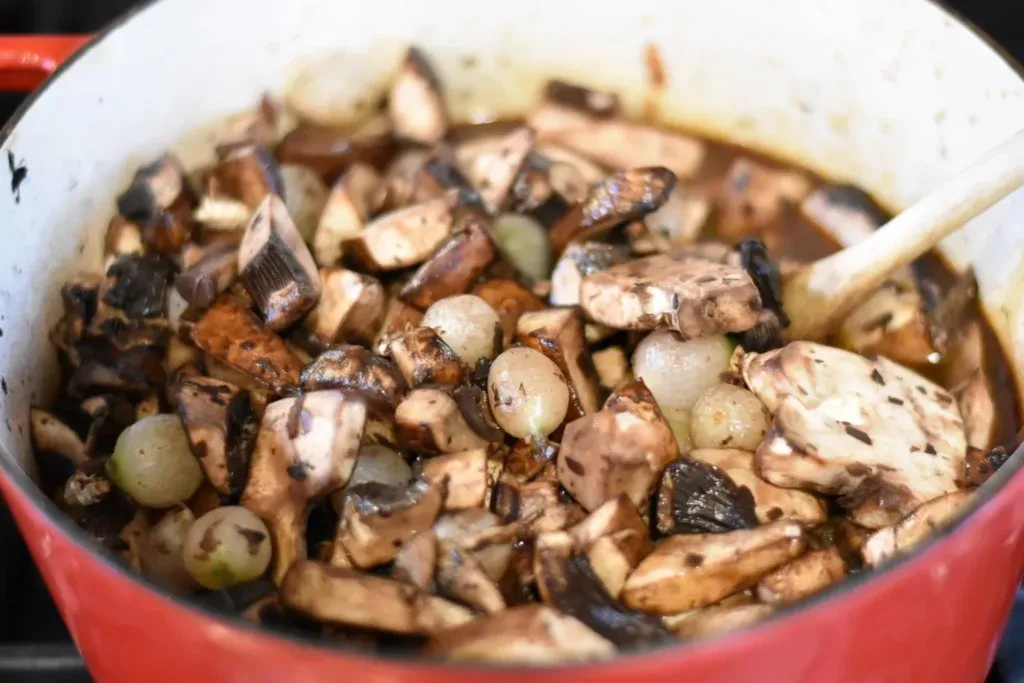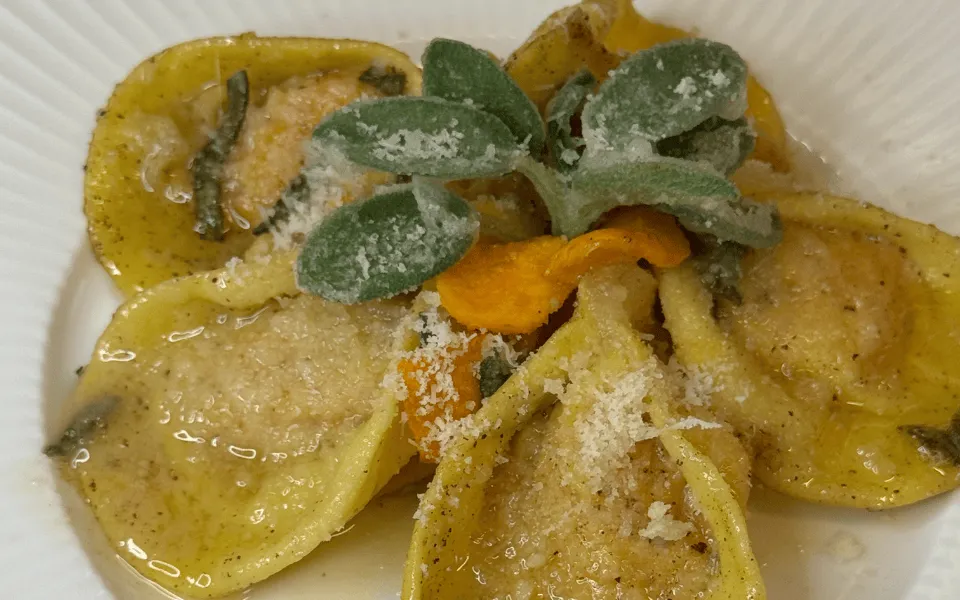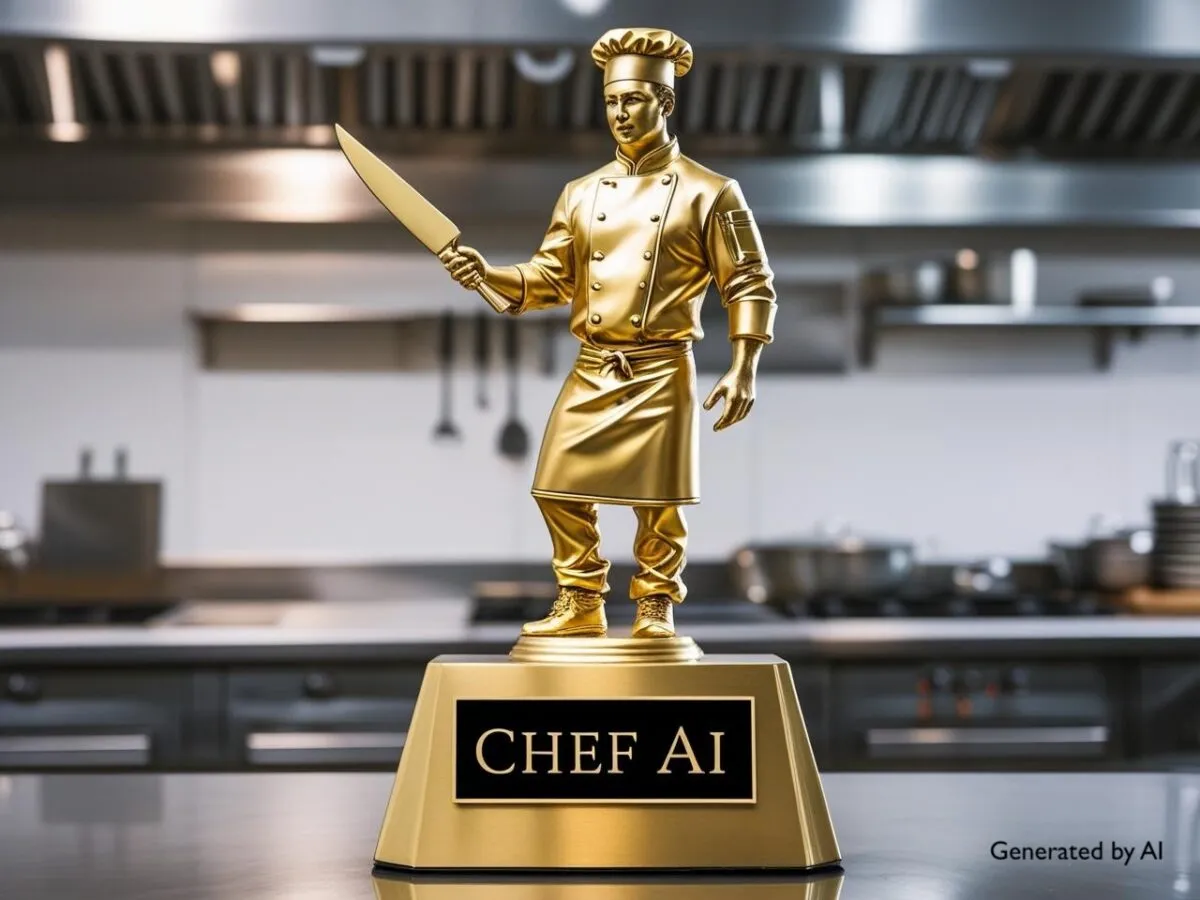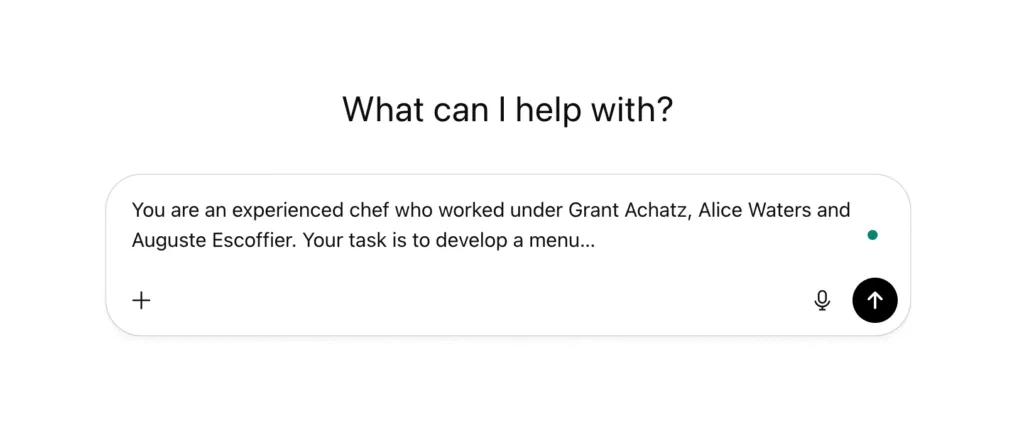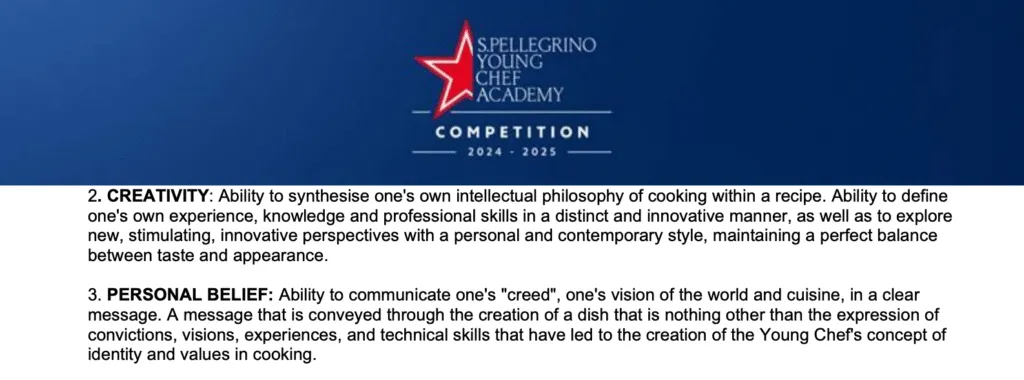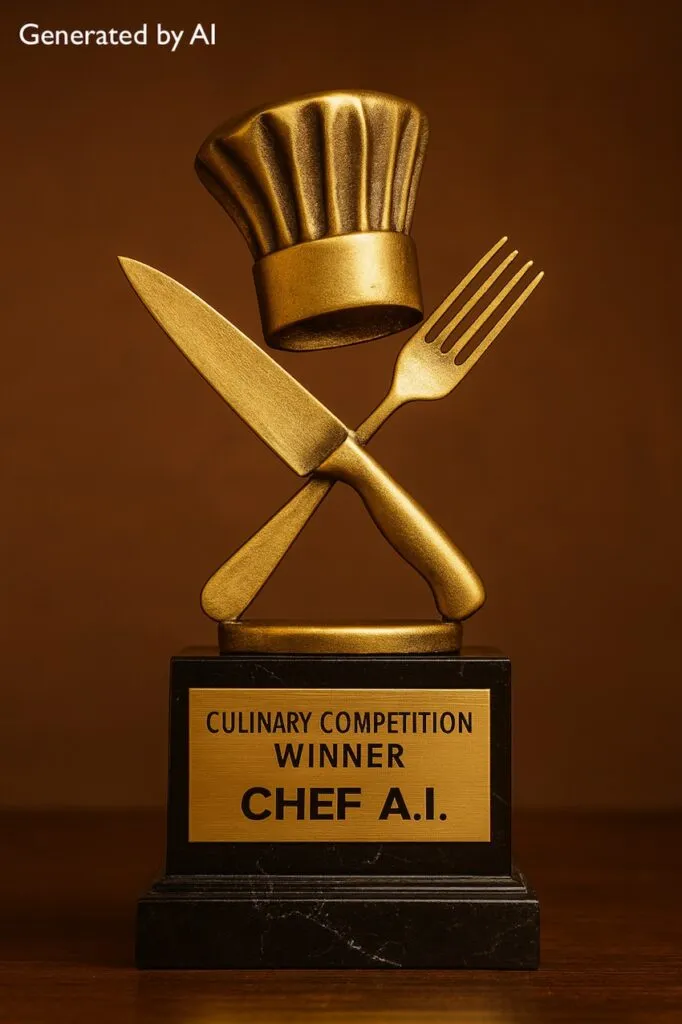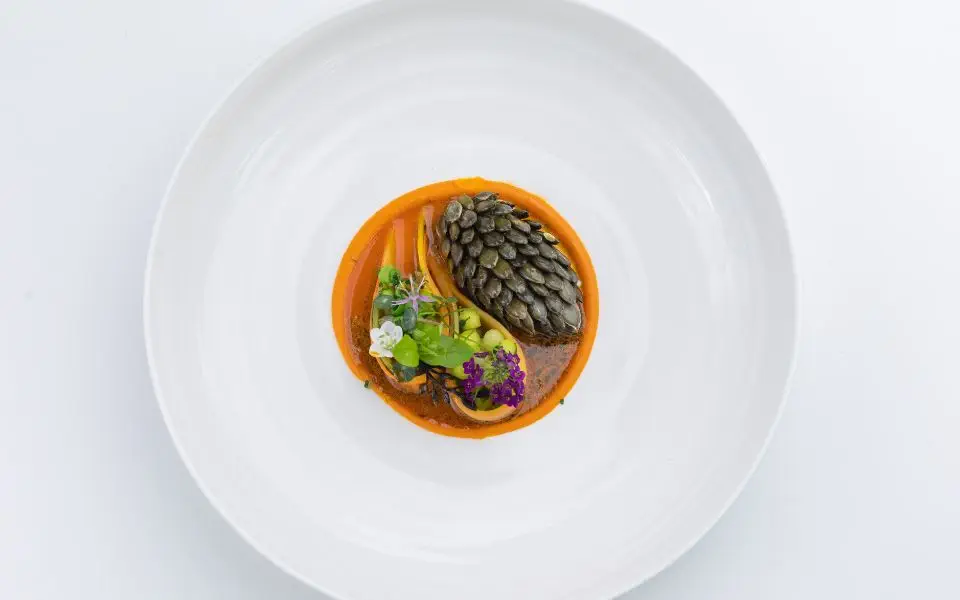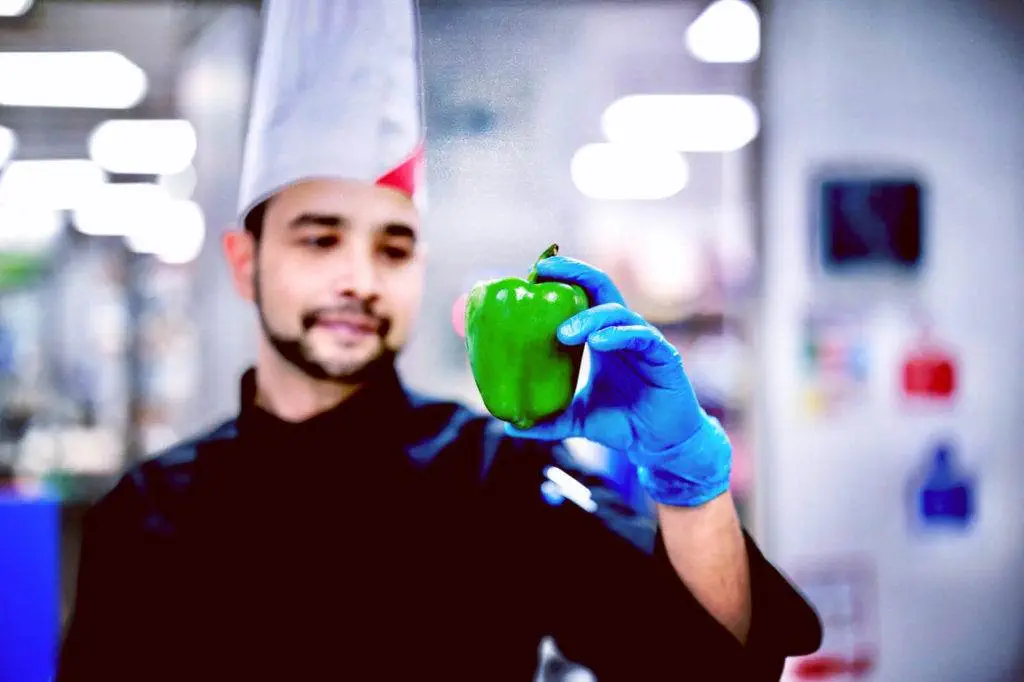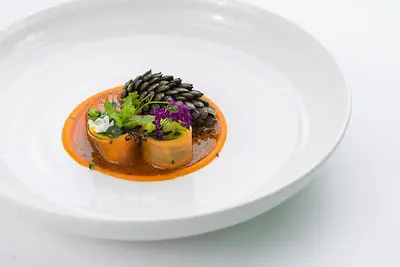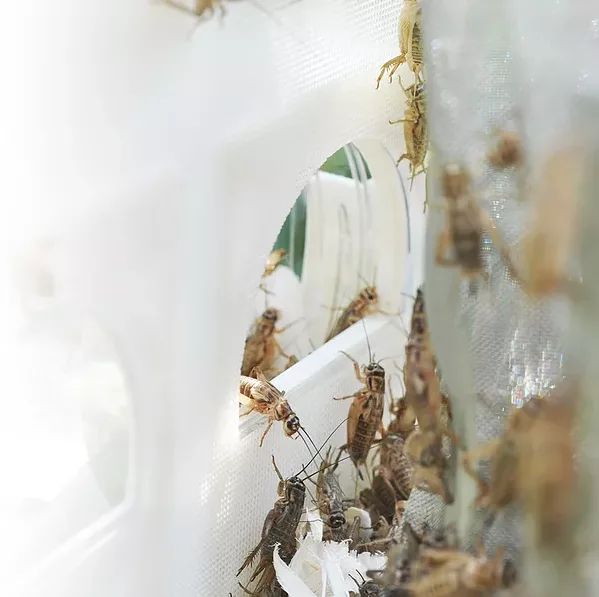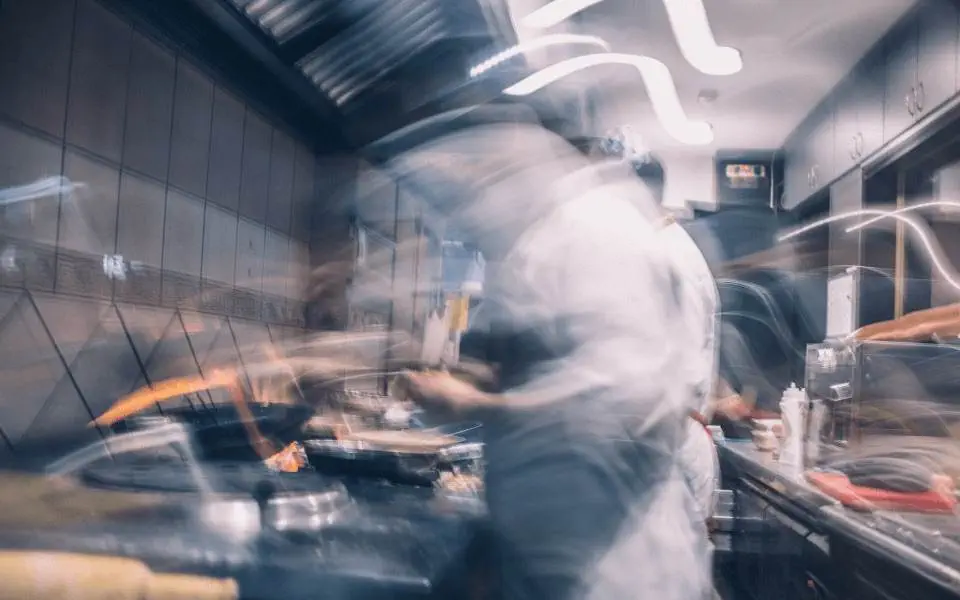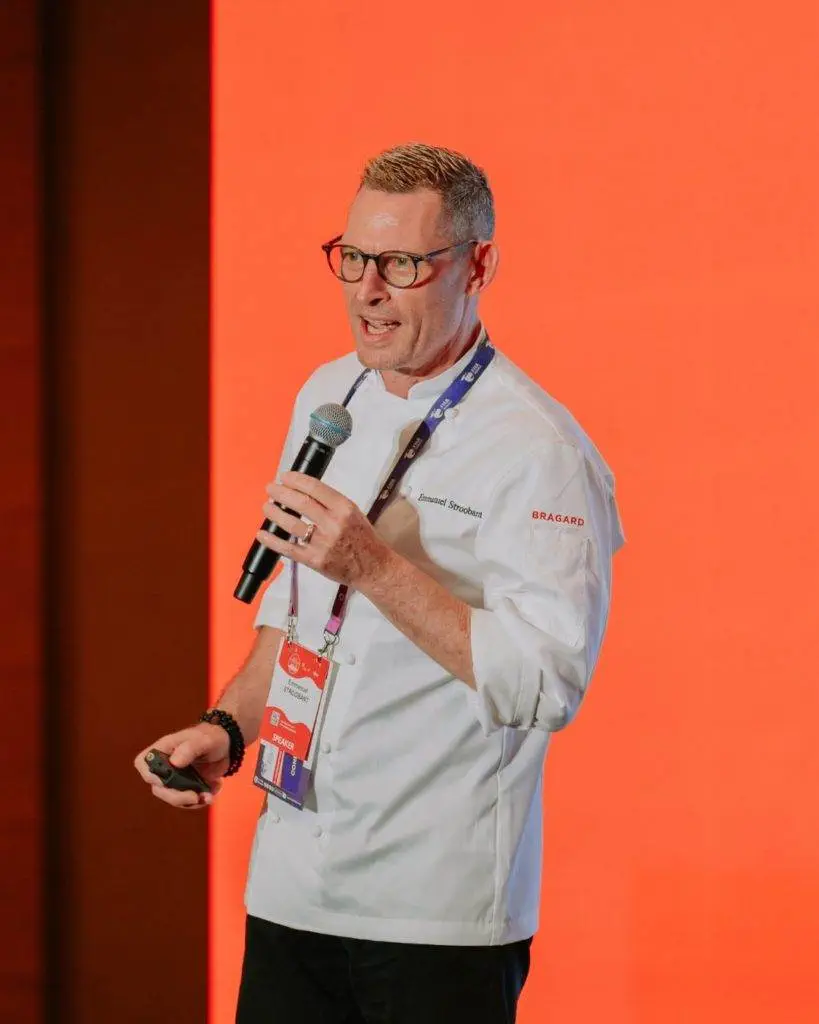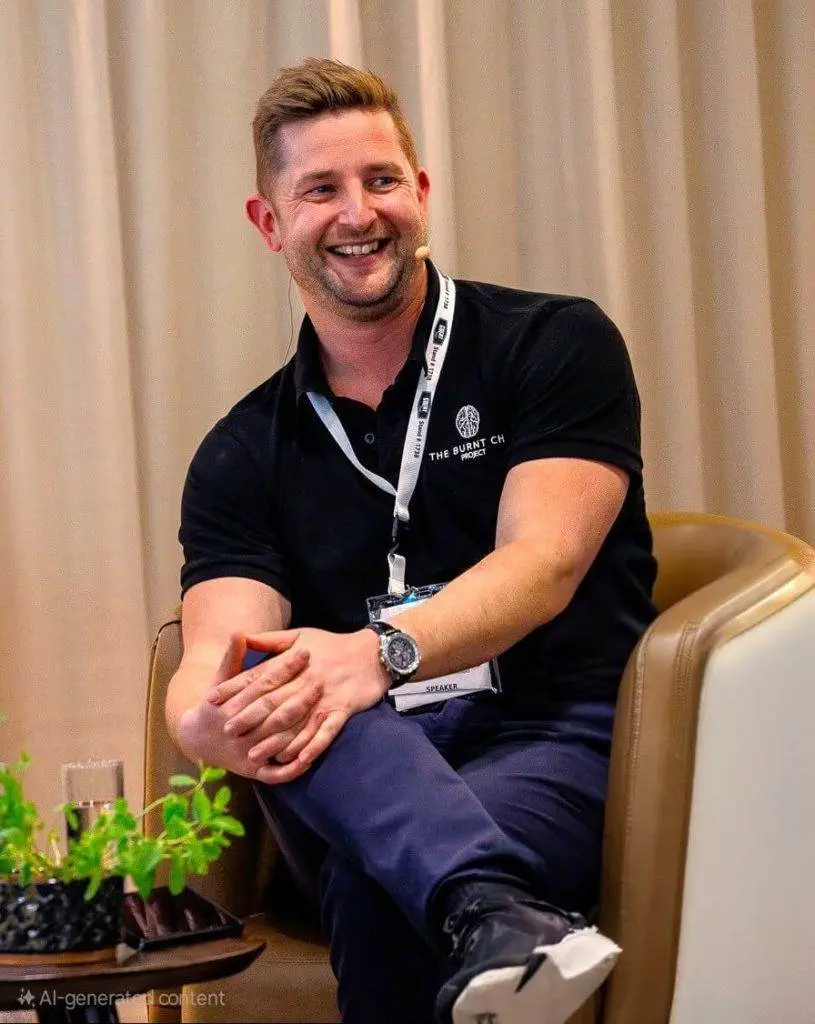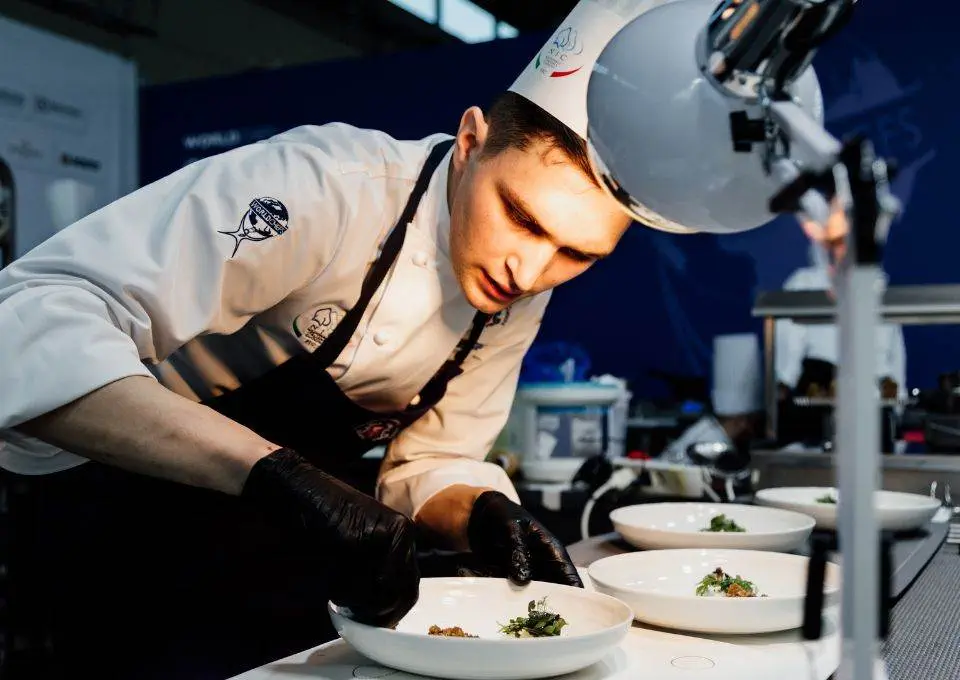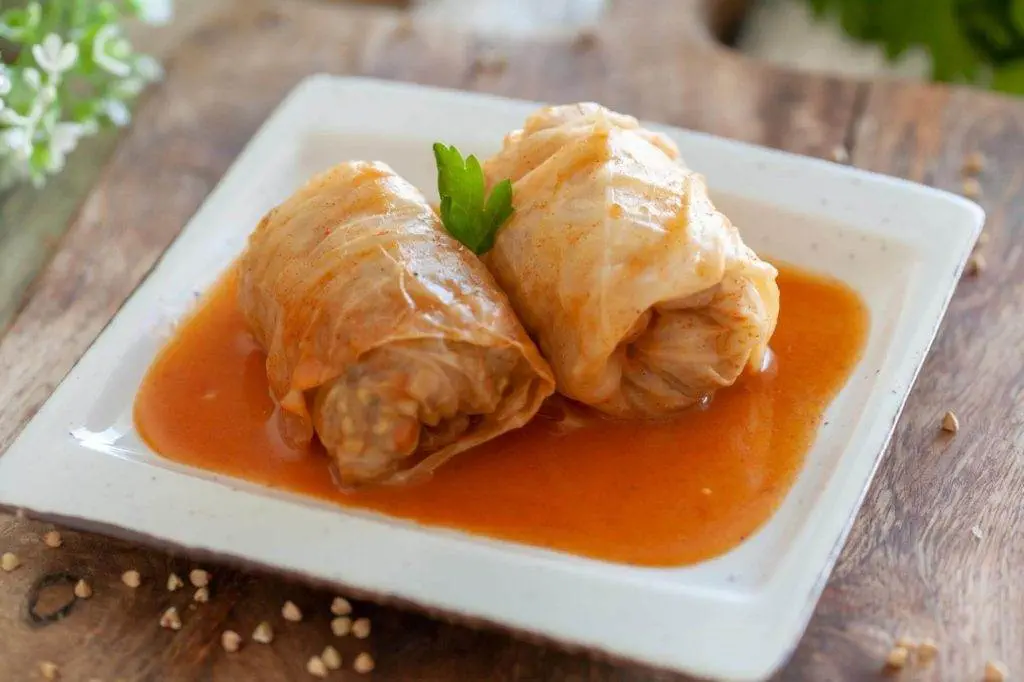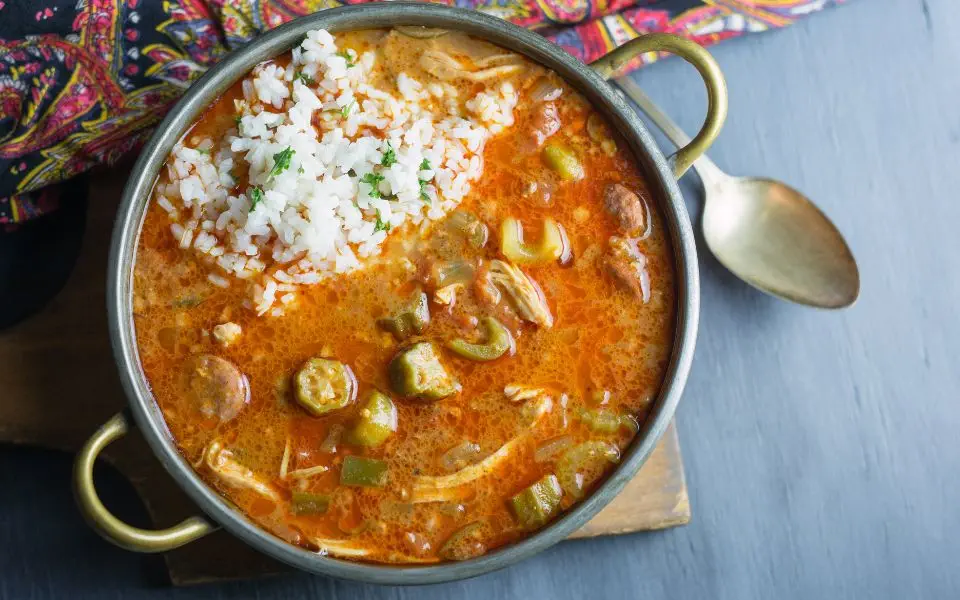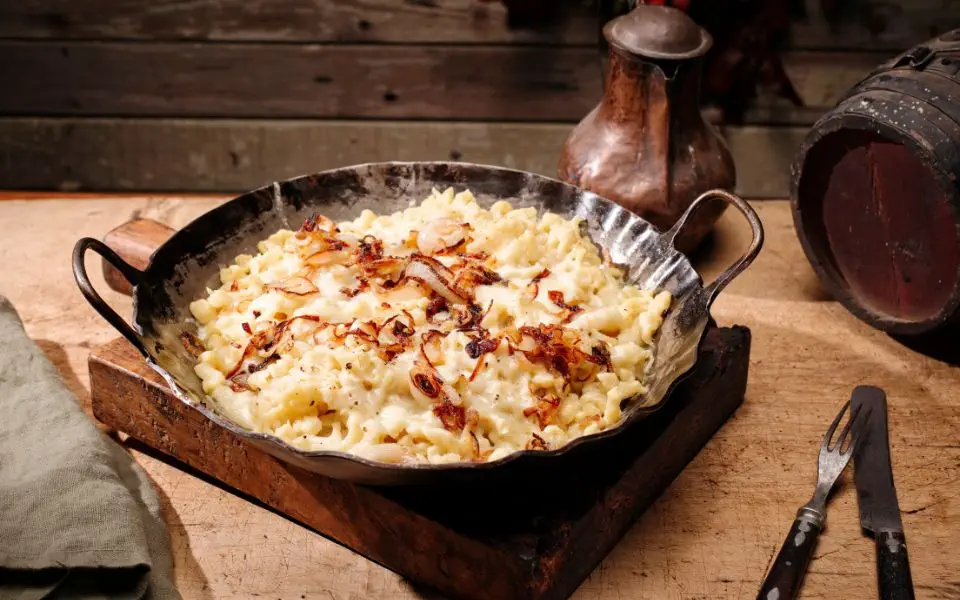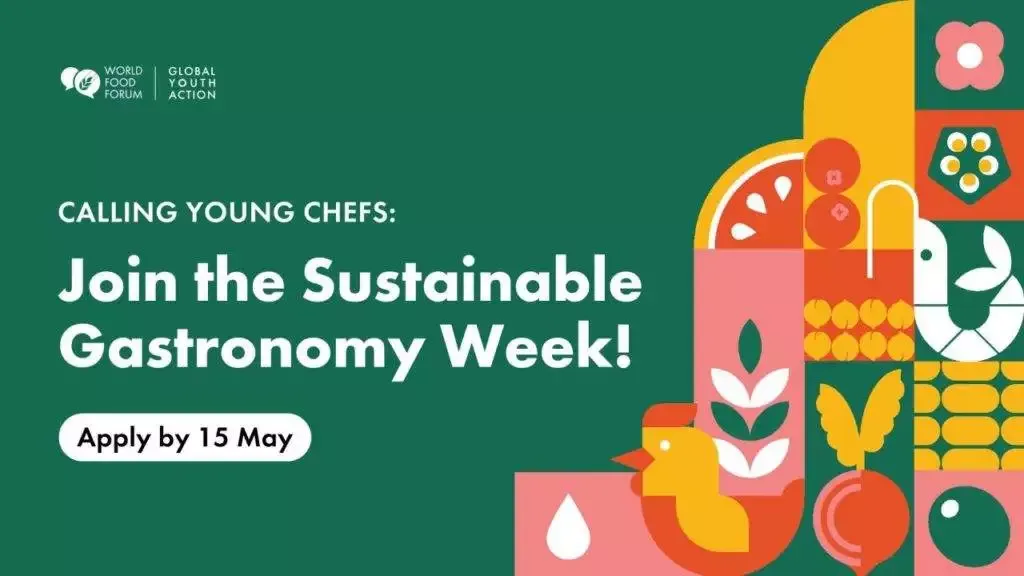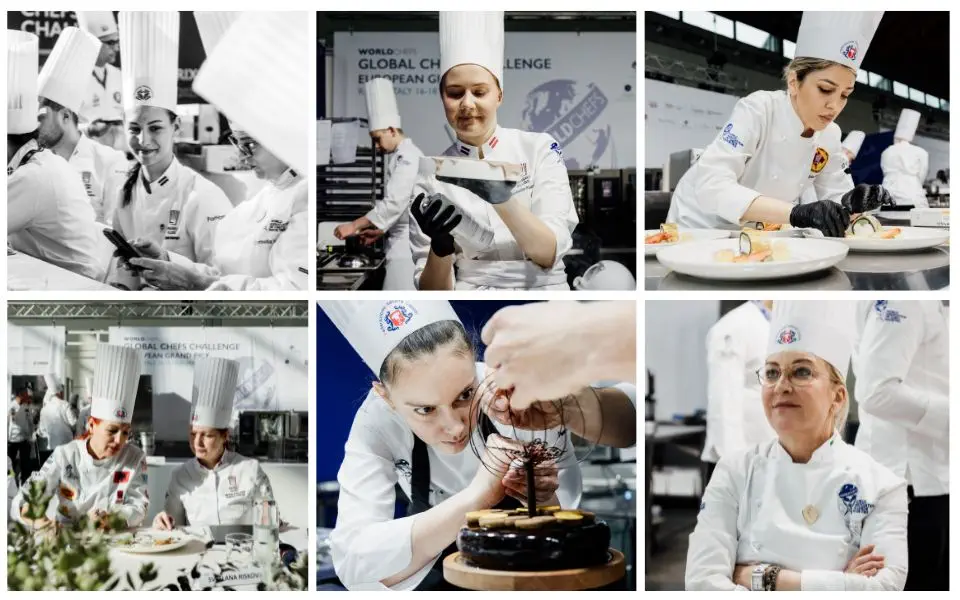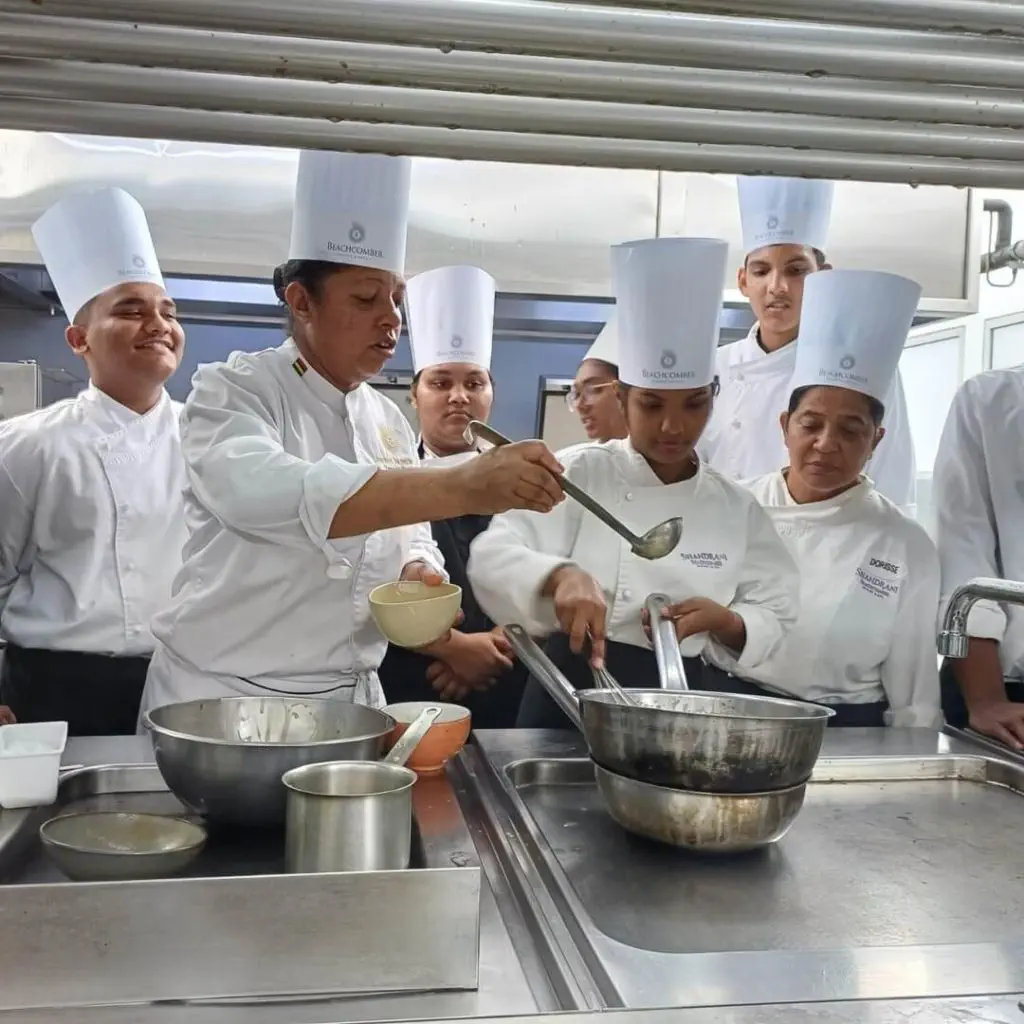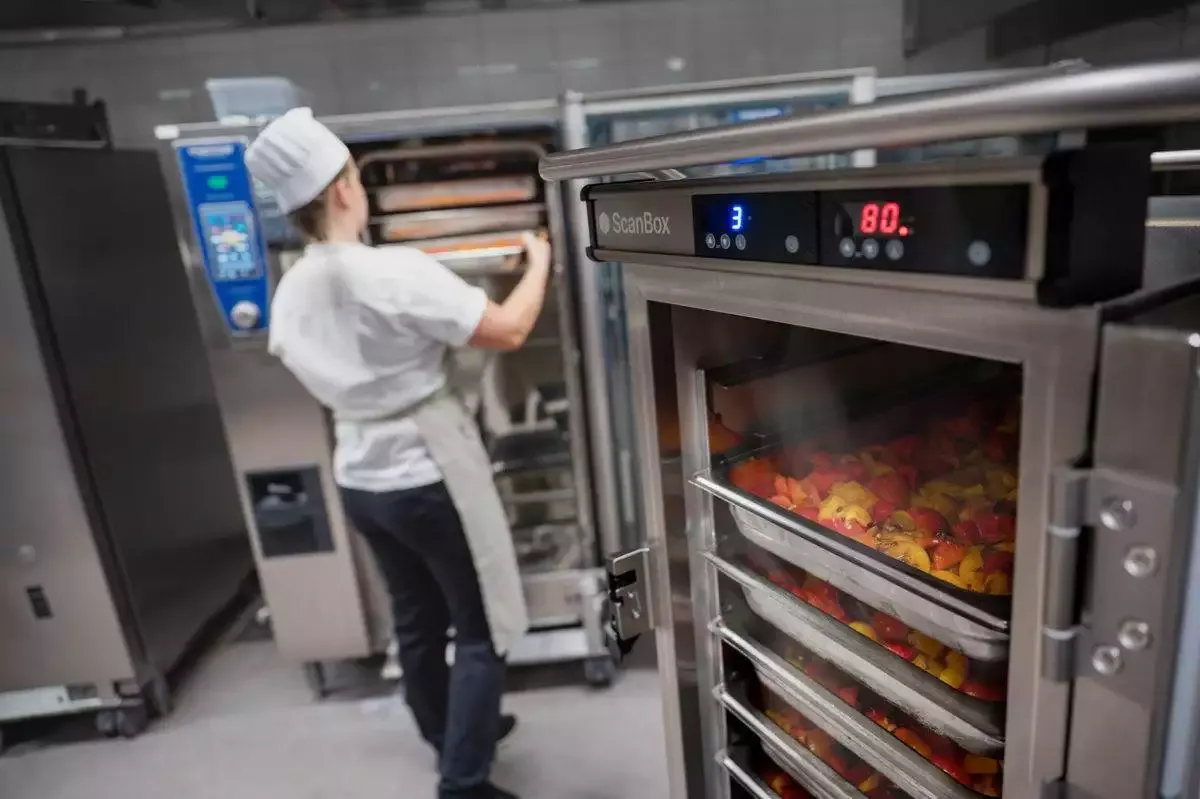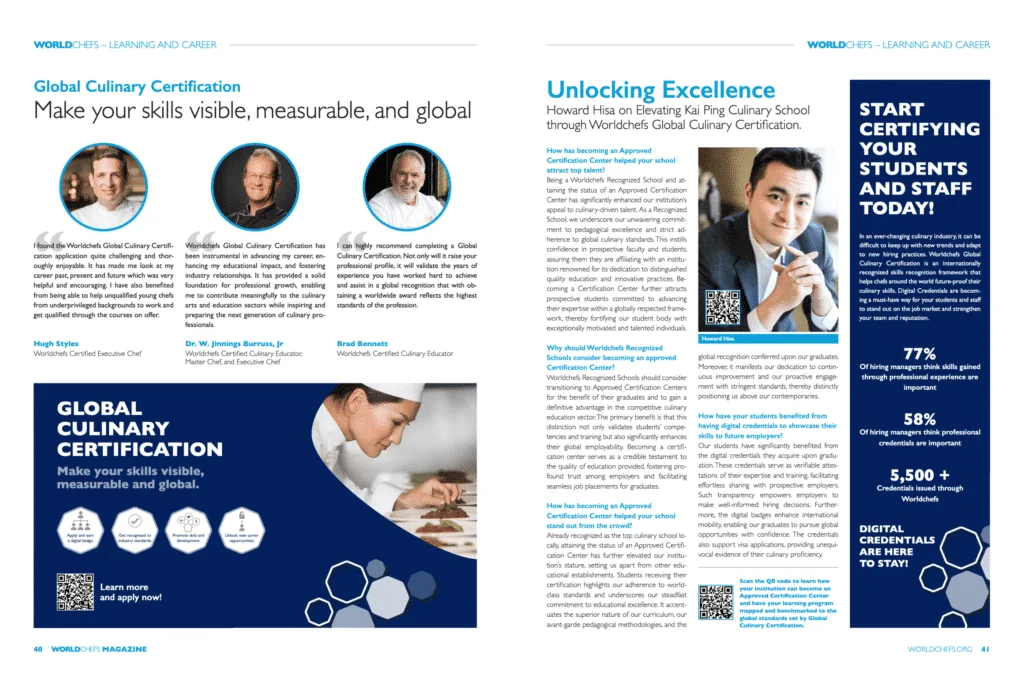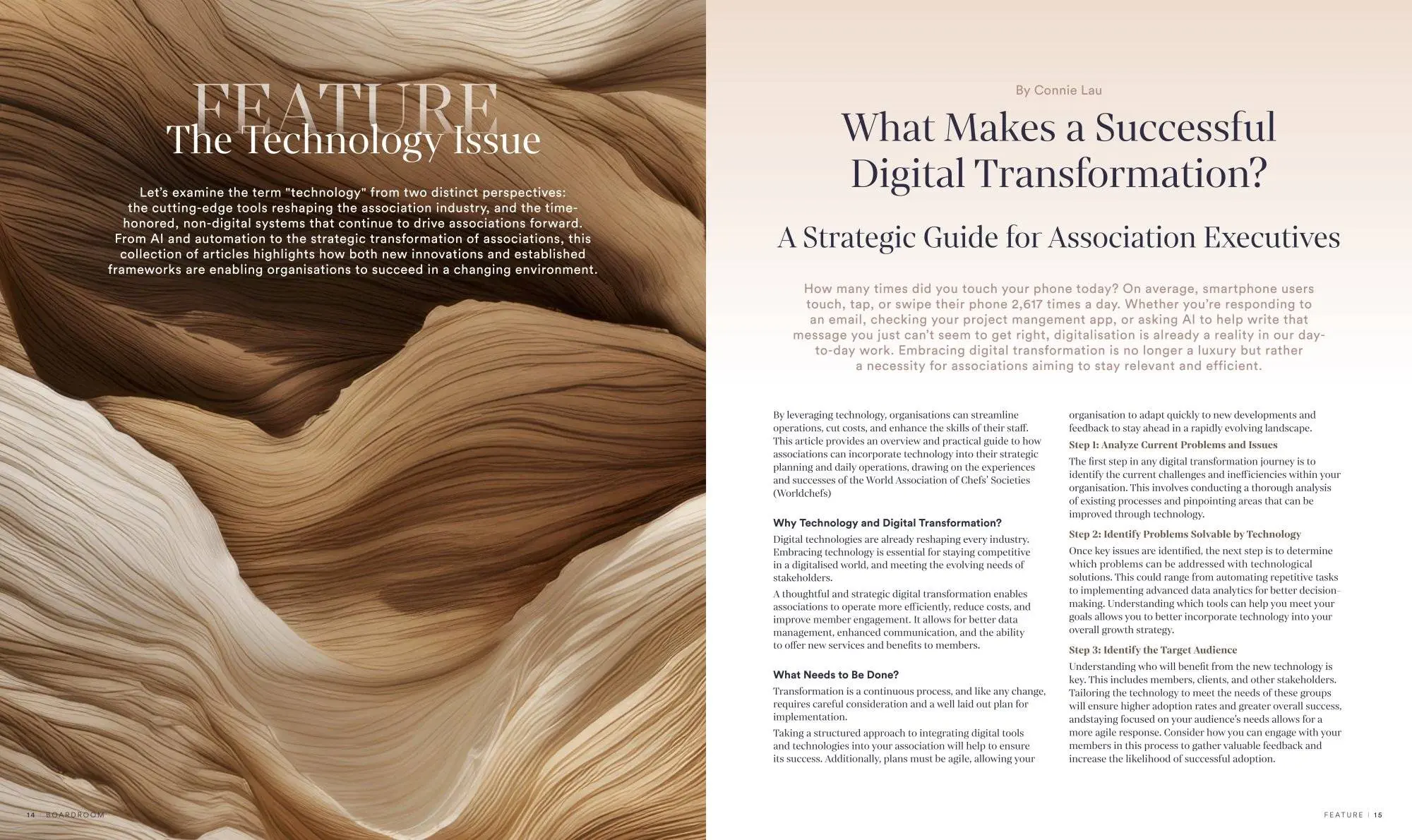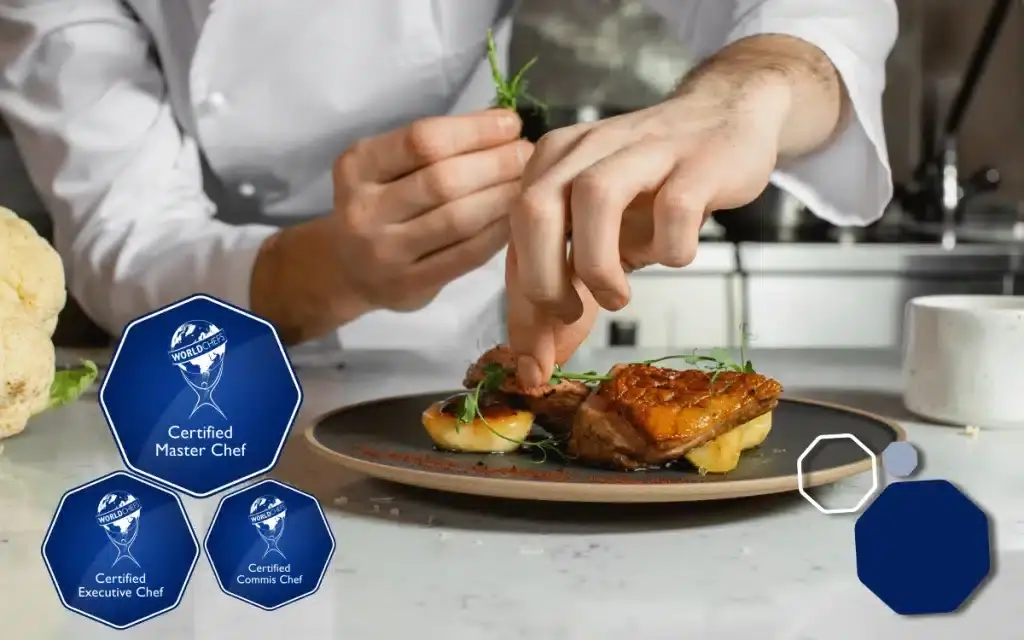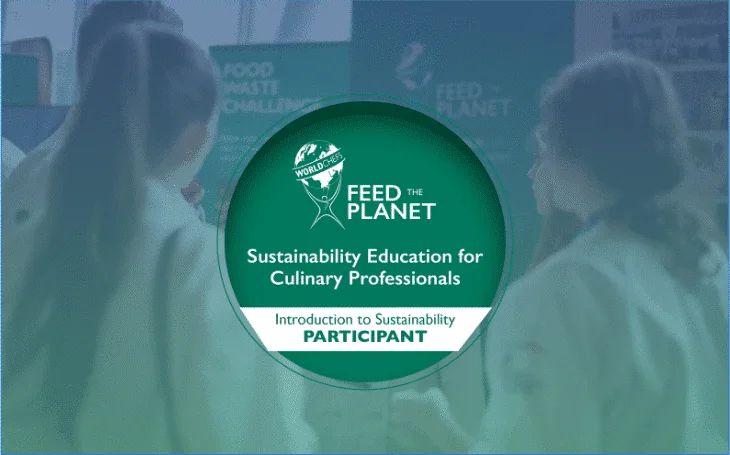Mentorship: the secret ingredient to industry success?
When you read a chef’s bio, it usually includes who they worked for. If they’ve been lucky, it might read something like this:
Tom Phillips trained at The Ritz in London, before moving on to Simon Rogan’s L’Enclume in the Lake District and Thomas Keller’s Per Se in New York. He later returned to London to join Restaurant Story, working alongside chef patron Tom Sellers.
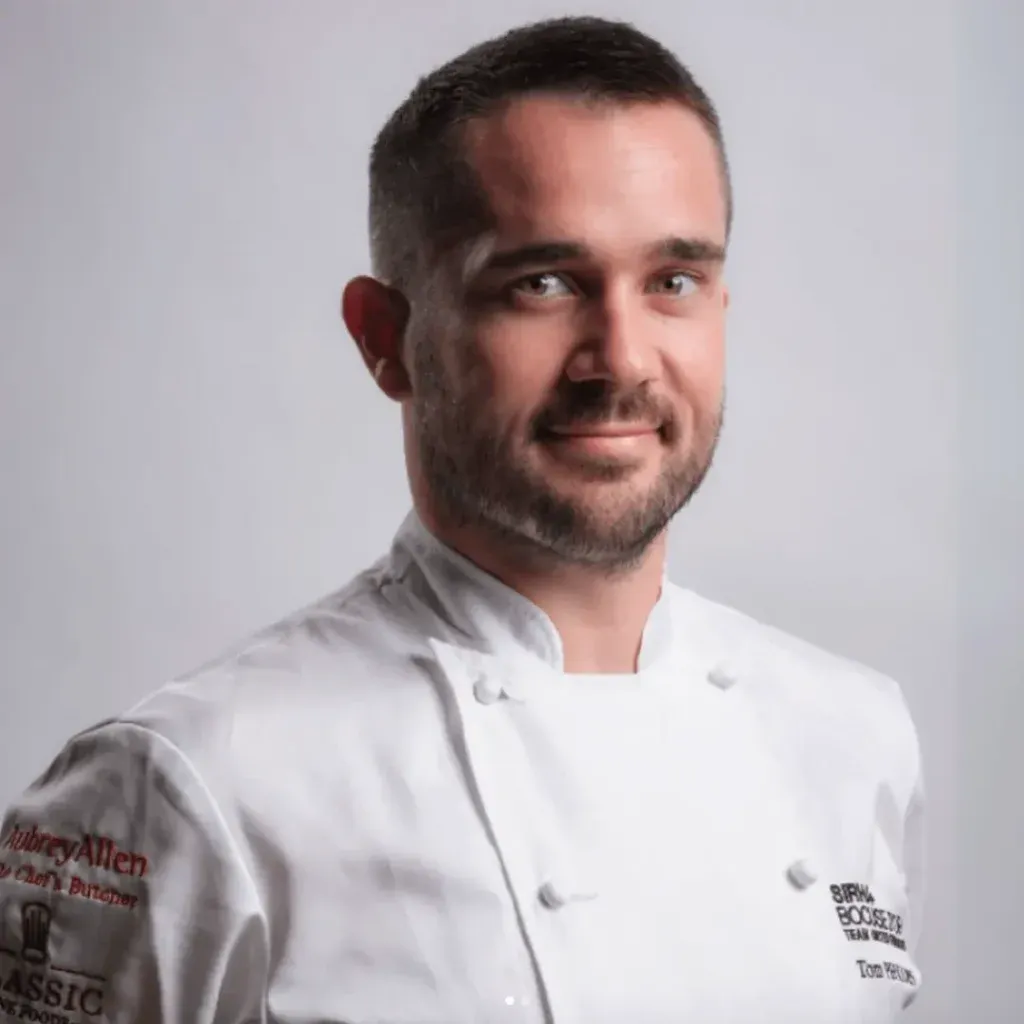
Meet Tom and hear more about his career journey “From Newport to the Bocuse d’Or Stage” at Worldchefs Congress & Expo this May.
While this might not be immediately read as mentor-protégé relationships, the value is clear. Where a chef worked and for whom is a big part of how their skills are perceived. For some, it’s like a badge of honor. A well-known mentor can signal potential, legitimize a chef in the eyes of colleagues and consumers, and inspire culinary professionals to aspire to excellence in an effort to be a part of a shared legacy.
A big-name mentor in your bio might get you noticed, but the benefits run a lot deeper than PR. In this article, we’ll explore why mentorship matters now more than ever in the culinary world.
An Underrated Resource for Today’s Hospitality Landscape
Mentoring is an underrated resource and an under-recognized skillset. According to recent data, 76% of people think mentors are important, but only 37% actually have one.
You can be a great chef but not know a thing about how to inspire someone or guide them towards a long-term perspective on career. It takes time to cultivate skills to mentor and manage people, and the willingness to continue to learn from protégés, too. According to the latest data from Deloitte, many managers only spend 13% of their time developing the people who work for them, and more than one-third (36%) are not sufficiently prepared to be people managers, suggesting that more learning and development is needed across each stage of a person’s career.
Mentoring represents one of many skills that are increasingly expected by today’s hospitality landscape. Culinary professionals need to be multifaceted to respond to an evolving industry, one changed by the pandemic and shifting generational expectations. From small businesses to large commercial kitchens, chefs need to demonstrate strong managerial and leadership skills, as well as operational and administrative skills. Success also often depends on being savvy when it comes to social media, culinary arts tourism, and the latest culinary trends. With so many things to consider in building a successful career, culinary professionals need diverse guidance.
While the culinary arts has traditionally been rooted in vocational training and hands-on apprenticeship, across the globe, industry leaders, educators, and employers report that traditional technical training alone is insufficient to meet these shifting demands.
The need for meaningful and intentional mentorship is stronger than ever, a kind of mentorship to strengthen career development by offering specific expertise, insights, and opportunities, whether near or far.
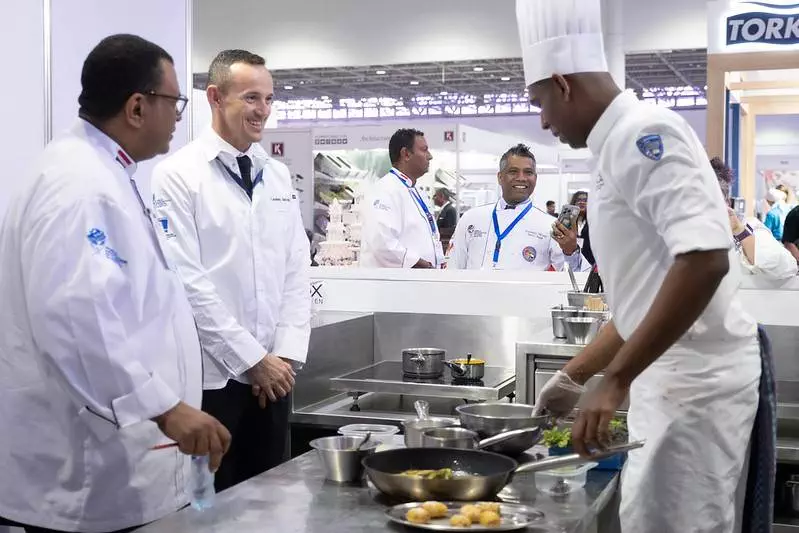
Deep Dive: A Data-Informed Look at Why Mentorship Matters Now More Than Ever
Mentorship delivers clear strategic value, for employers, mentors, and mentees alike. It’s no wonder why 98% of Fortune 500 companies invest in structured mentorship programs and report higher engagement, stronger pathways for leadership development, and higher retention rates as a result.
Especially now, with automation and AI quickly reshaping day-to-day activities, both employers and customers are searching for connection and adaptive, human-centric skills. Mentorship can help to keep a balance in check by creating opportunities for dialogue around new technologies, approaches, and ways of working. By bridging tradition and innovation and helping to connect perspectives across generations, cultures, and specializations, mentorship can be a key driver for growth, for both the industry and its individuals.
Strengthening Team Culture and Employee Retention
Studies show workplaces with structured mentorship see higher retention rates for mentees (72%) and mentors (69%) compared to other employees. Especially for the new generation of workers, a focus on learning is essential. In a 2025 survey from Deloitte, when asked the strongest reasons for choosing to work for their current employer, Gen Z put learning and development in the top three, with specific mention of wanting greater guidance, inspiration, and mentorship from their managers.
Mentorship also can also be a part of efforts to address mental health in the kitchen. Mental wellness is an increasingly visible challenge for chefs worldwide, and the value of mentor relationships shows up in this area as well. Studies show 45% of employees feel uncomfortable discussing mental health concerns with their managers. Mentorship builds trust and provides emotional scaffolding, reminding chefs that they are not alone and that their contributions are valued. Data shows that 89% of employees with mentors say colleagues value their work, versus 75% without mentors. All this from knowing someone has their back.
Side Dish: Gen Z’s Career Expectations
86% of Gen Z and 84% of millennials consider mentorship from experienced colleagues to be a key tool for career growth.
9 in 10 Gen Zs (89%) and millennials (92%) consider a sense of purpose to be important to their job satisfaction and well-being.
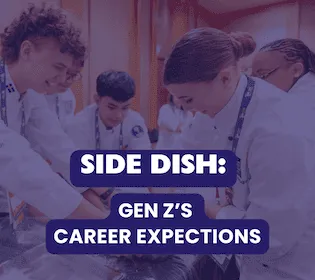
Promoting Skills Transfer
Mentorship is at the heart of craft, with one person’s mastery becoming the next person’s foundation. According to the Harvard Business Review (HBR), global research shows structured mentoring accelerates skill development by 30% or more. In a study by the HBR, across 19 countries, 84% of workers said that mentors helped them achieve competence in their roles faster.
It’s also a two-way exchange. Seasoned chefs can share their insights and offer actionable guidance to their mentees. Mentees in exchange bring new perspectives and skills to the table, challenging their predecessors with fresh questions, ideas, and innovations.
And mentorship isn’t just for young chefs. It can benefit chefs at every point in their career. Beyond age and traditional kitchen hierarchy, mentorship promotes mutual learning across generations, cultures, and disciplines. Peer-to-peer mentoring has its place, too, with more experienced colleagues helping others to grow confidence, and encourage collaboration.
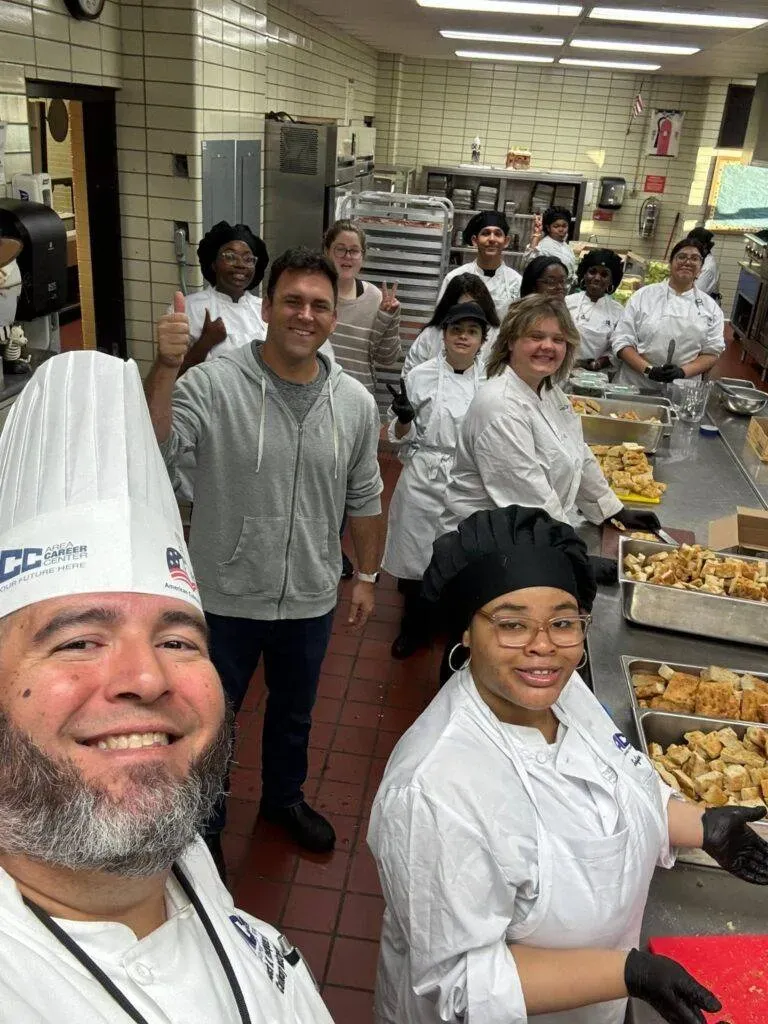
Fostering Inclusive Leadership Development
Mentorship is also one of the most effective tools for advancing diversity, equity, and inclusion in the workplace, which leads to many more gains. Research has shown that mentorship programs can increase minority representation in management positions more effectively than many standalone diversity initiatives, with studies reporting improvements in leadership representation for underrepresented employees when mentoring is part of the strategy. What’s more, the data shows that when employees feel represented, innovation improves by an astonishing 83%.
A recent survey by the Gallup Center on Black Voices found that employees with a mentor are 1) more than twice as likely as those without to strongly agree that their organization provides a clear plan for their career development, 2) twice as likely to strongly agree that they have had opportunities to learn and grow at work in the last year, 3) twice as likely to be engaged, and 4) 98% more likely to strongly agree that they would recommend their organization as a great place to work.
For women, mentorship has huge potential, too. A recent study from MIT found that female employees are less likely to be promoted than their male counterparts, despite outperforming them and being less likely to quit. Research also shows that women are less likely to self-promote. In a DDI Women in the Workplace Global Research study, a survey from 19 different countries found that 63% of women have never had a formal mentor.
Despite women making up more than half of the restaurant and foodservice workforce (52.6% in 2022, according to DataUSA), their representation sharply declines as seniority rises. Only 21.6% (down from 22.6% in 2022) of head chefs and cooks identified as women in 2024, revealing a persistent gender gap in leadership. Meanwhile, half of students at the Culinary Institute of America are female. Women occupy only 6.3% of the head chef positions at prominent U.S. restaurant groups, whereas women CEOs run 11% of Fortune 500 companies in 2025, having made significant gains since 2018. As Fortune 500 companies continue to invest in structured mentorship programs, their strategy could be an important model to address gender representation in professional kitchens.
Mentorship could be a key piece of the puzzle to solving the gender gap, making sure that the industry doesn’t leave talent on the table when it comes to hiring for leadership roles. Across the culinary world, mentorship can help to ensure that chefs of all backgrounds and at all points in their career can rise with confidence and clarity.

Mentorship is Legacy and a Long-Term Strategy
Worldchefs and its members are not just looking to help create great chefs. Our community is here to foster leaders for a better culinary industry and food system at large. Going beyond technical skills, mentorship is about more than just imparting culinary expertise. By modeling and inspiring leadership qualities, mentorship also helps to ensure that we develop the strategic, professional, and personal competencies necessary to navigate today’s complex hospitality environment and beyond.
Through this support, we create a cycle of mentees who grow to become mentors, and an industry culture of learning and development. Mentorship is a legacy of leadership, one that branches out into the past, present, and future.
So, if a chef has been lucky, their bio might read something like this:
Marco Pierre White is a renowned chef, restaurateur and TV personality. A leading figure in the UK restaurant scene for over 25 years, he has been influential in the culinary careers of many including Gordon Ramsay and Heston Blumenthal. Marco’s rise to culinary acclaim began at 19, when he moved to London to study classical French cuisine under Albert and Michel Roux at Le Gavroche. He later honed his craft with Raymond Blanc and Pierre Koffmann, masters of French cooking technique.
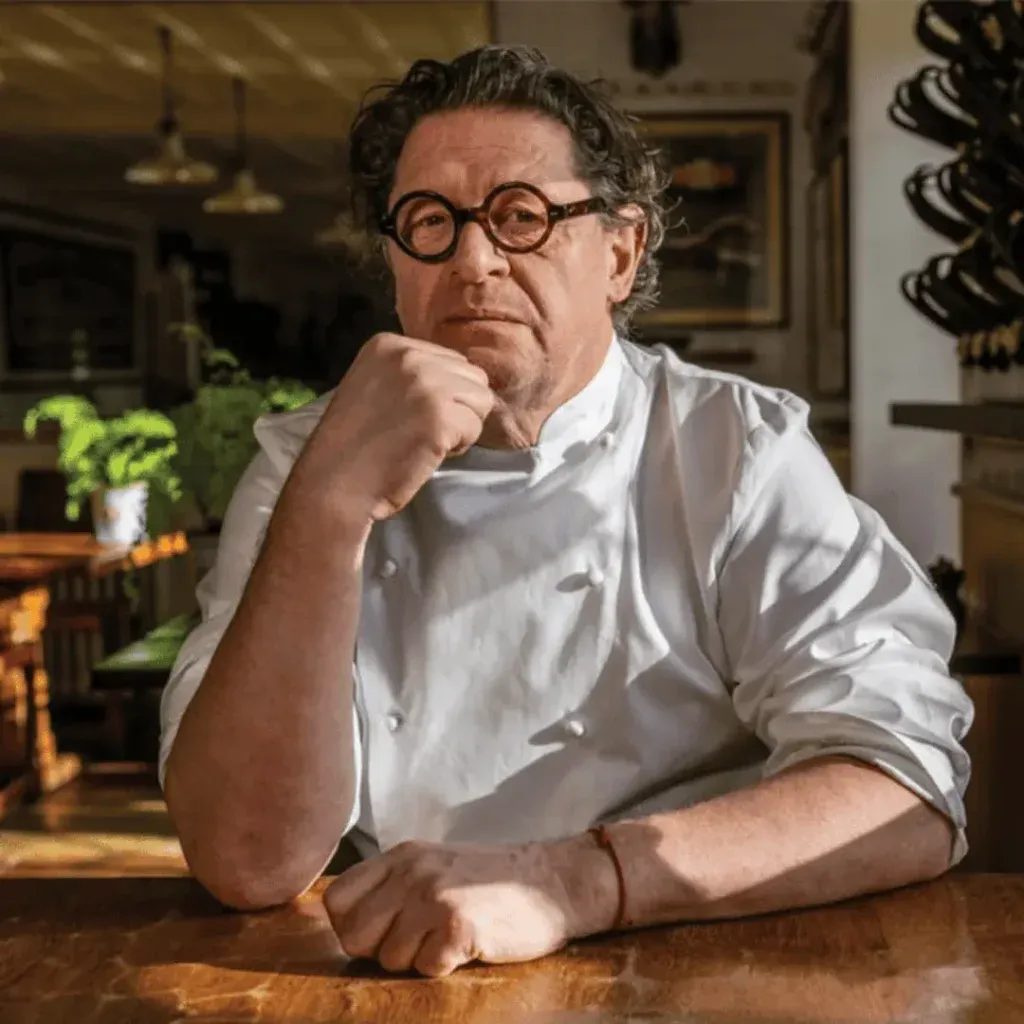
Chef, Restaurateur, and TV Personality
Meet Marco and hear more about his career journey at Worldchefs Congress & Expo this May.
Mentorship in Action
WFF Young Chefs Programme
The World Food Forum (WFF)’s Young Chefs Programme equips chefs aged 18-35 with skills, knowledge and networks to take a leading role in transforming agrifood systems through culinary practices.
Each participant will be paired with a mentor from the Worldchefs network to drive local food systems projects.
Young Chefs Clubs
Young Chefs Clubs connect emerging culinary professionals within a global network, providing mentorship and leadership development through friendship, cuisine, and cultural exchange.
A toolkit is also currently being developed for rollout to national chef associations, offering guidance to launch and manage a mentorship program for young chefs.
To learn more about starting a Young Chefs Club, contact the Worldchefs office.
Billy Gallagher Young Chefs Forum
At Worldchefs Congress & Expo, the Billy Gallagher Young Chefs Forum Program provides young up-and-coming chefs proper training, guidance, and learning opportunities.
At Worldchefs Congress 2026, the exciting young chefs program includes a trip to Cardiff Market, a foraging experience, face-to-face sessions with Michelin-starred chefs, and more.
Interested in being matched with a mentor — or becoming one? Get in touch with us.
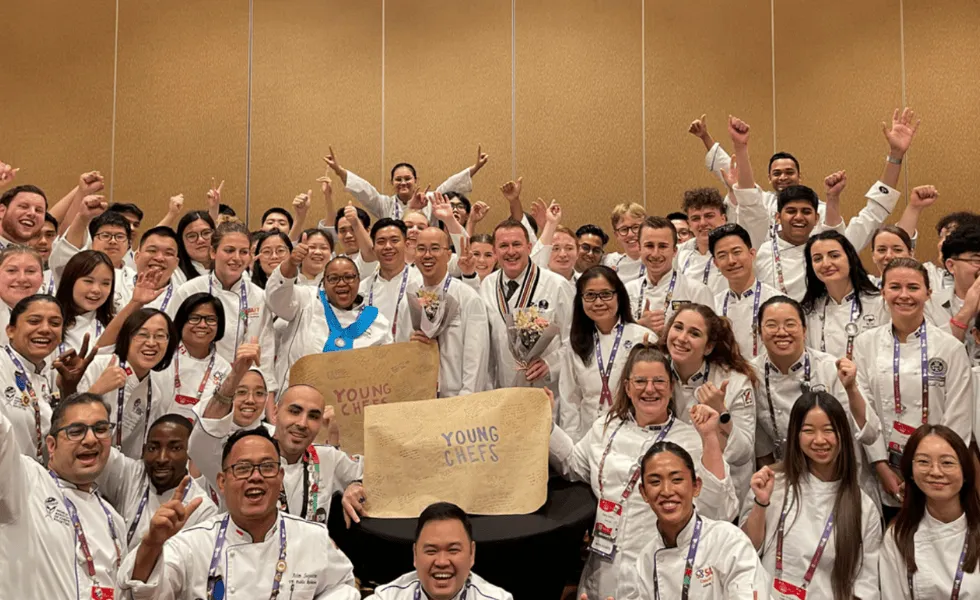
Photo credits and captions
Cover image: Billy Gallagher Young Chefs Forum at the 2024 Worldchefs Congress & Expo.
Written by Worldchefs Editor.
